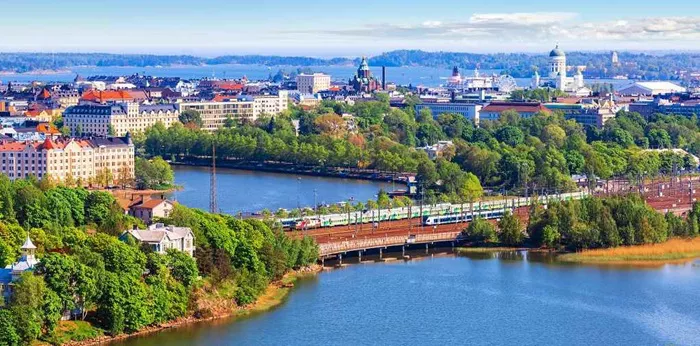Introduction
Securing permanent residency (PR) in Finland can be both an appealing and complex process. Whether or not it is easy depends on various factors, including your background, purpose of stay, and adherence to Finnish immigration laws. In this article, we will explore the pathways to PR in Finland, the requirements, and the challenges one might face.
Pathways to Permanent Residency
There are several pathways to permanent residency in Finland. The most common routes include employment, family ties, studies, and humanitarian grounds.
Employment: One of the primary ways to obtain PR is through employment. If you have been working in Finland with a continuous residence permit (A permit) for four years, you may be eligible for PR. Employment-based residency requires that you maintain a stable job, pay taxes, and adhere to Finnish employment laws.
Family Ties: If you have a family member who is a Finnish citizen or holds PR, you may be eligible for PR through family reunification. This process involves proving your relationship and the Finnish resident’s ability to support you financially.
Studies: Students from non-EU/EEA countries can apply for a PR after completing their studies and finding employment in Finland. You must transition from a student residence permit to an employment-based permit and then maintain continuous residency for the required period.
Humanitarian Grounds: Refugees and individuals granted asylum can apply for PR after a certain period, typically four years, if they meet the criteria set by Finnish authorities.
Requirements for Permanent Residency
To obtain PR in Finland, you must meet specific requirements. These include:
Continuous Residence: You must have lived in Finland continuously for four years with a continuous residence permit (A permit). Short absences are allowed, but prolonged stays outside Finland can affect your eligibility.
Stable Income: You must demonstrate that you have a stable income to support yourself and your dependents. This includes employment, self-employment, or other legitimate sources of income.
Integration: You must show integration into Finnish society. This can be demonstrated through language skills, participation in Finnish society, and an understanding of Finnish laws and customs. Passing a language test (Finnish or Swedish) is often required.
Clean Criminal Record: A clean criminal record is essential. Any criminal activity can negatively impact your application.
Compliance with Laws: You must comply with Finnish immigration laws and regulations. This includes timely renewals of residence permits and adherence to visa conditions.
Challenges in Obtaining Permanent Residency
While the pathways and requirements are clear, there are several challenges that applicants might face:
Language Barrier: Finnish and Swedish are the official languages of Finland. Mastering either language can be challenging for many immigrants. Language proficiency is crucial for integration and can impact your ability to secure employment and socialize.
Employment Stability: Maintaining stable employment can be difficult, especially in sectors that are not in high demand. Economic downturns and job market fluctuations can affect your ability to meet income requirements.
Bureaucracy: The application process for PR can be lengthy and involves a lot of paperwork. Ensuring that all documents are accurate and submitted on time is crucial. Any discrepancies or missing documents can delay the process.
Integration: Integrating into Finnish society requires effort. Cultural differences, social norms, and the cold climate can be challenging for new immigrants. Participation in community activities and social integration programs can help, but the process takes time.
See Also: Can I Go with My Family to Study in Finland?
Benefits of Permanent Residency
Obtaining PR in Finland comes with several benefits:
Long-Term Stability: PR provides long-term stability and security, allowing you to live and work in Finland indefinitely.
Social Services: PR holders have access to various social services, including healthcare, education, and social security benefits.
Travel Freedom: PR allows you to travel freely within the Schengen Area without needing additional visas.
Path to Citizenship: PR is a stepping stone to Finnish citizenship. After holding PR for a certain period, you can apply for citizenship if you meet the additional criteria.
Conclusion
Is it easy to get permanent residency in Finland? The answer depends on your circumstances. For those who meet the requirements and are prepared to navigate the challenges, obtaining PR can be a straightforward process. However, language barriers, employment stability, and integration efforts can make the journey complex. Understanding the pathways, meeting the requirements, and being prepared for the challenges can significantly increase your chances of success. Finland offers a high quality of life, and obtaining PR can open doors to numerous opportunities and benefits.
FAQs
What is the minimum residency requirement for PR in Finland?
The minimum residency requirement is four years of continuous residence with a continuous residence permit (A permit).
Do I need to speak Finnish to get PR?
Yes, demonstrating language proficiency in Finnish or Swedish is often required as part of the integration process.
Can I apply for PR through family reunification?
Yes, if you have a family member who is a Finnish citizen or holds PR, you can apply for PR through family reunification, provided you meet the necessary criteria.
Related topics:



















